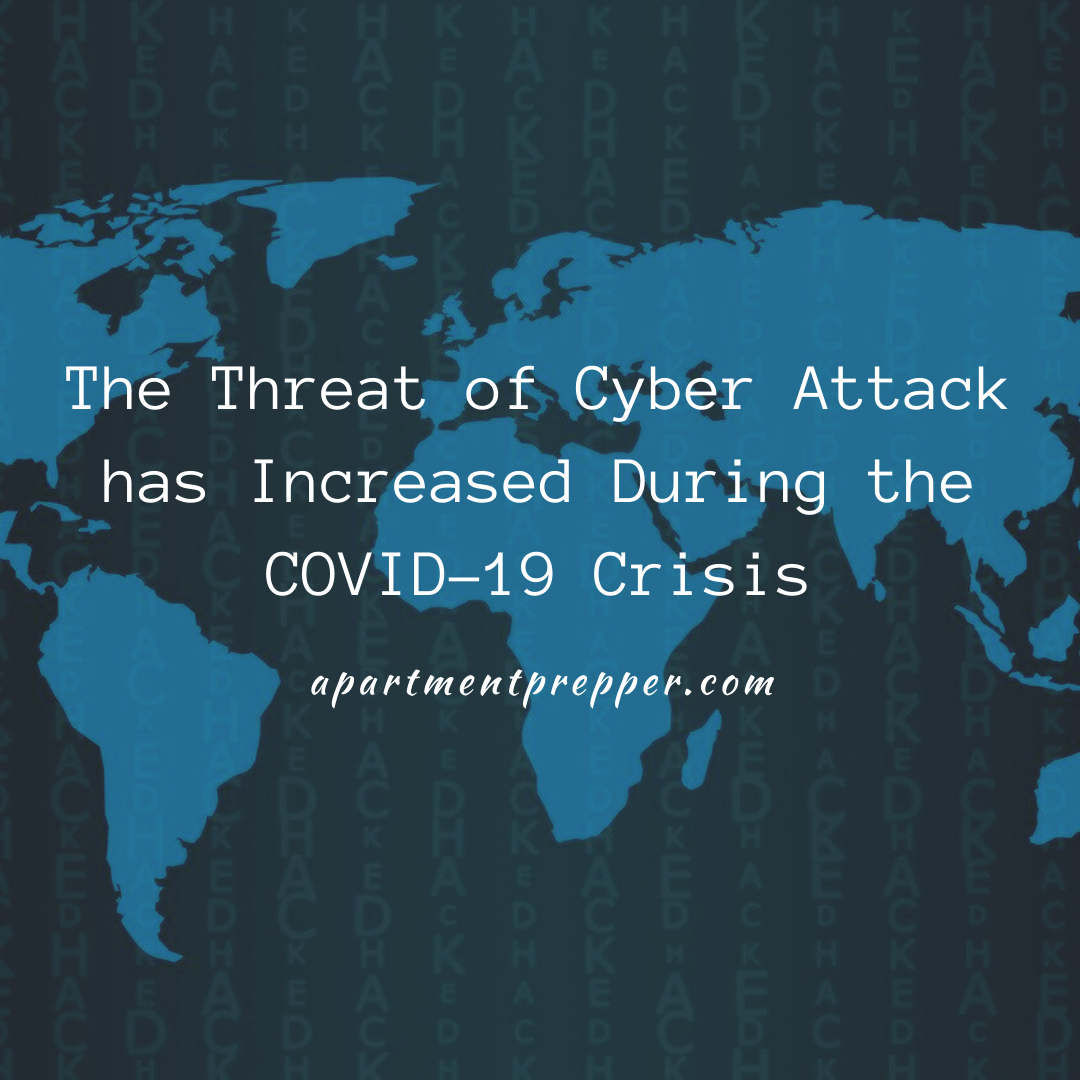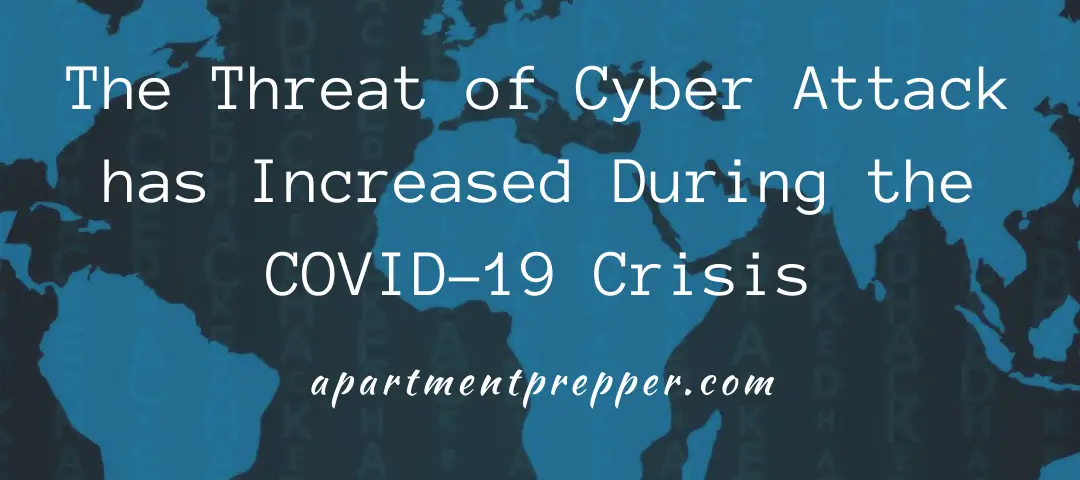This post is by Bernie Carr, apartmentprepper.com
We have enough to worry about during this time of COVID-19 spread, sheltering in place, possible recession. But it seems that the threat of cyber attack has increased.
It was happening before
Before the coronavirus started to spread, many towns and cities were already getting cyber-attacked:
- 22 Texas towns were affected by ransomware back in August 2019 according to NPR
- Many government facilities including cities, towns, school districts were all being targeted throughout the year, according to CBS News.
- In December, the city of New Orleans declared a state of emergency after a cyber attack, according to Forbes.
It’s happening now
More recently, in the midst of the COVID-19 crisis, the Department of Health and Human Services was hit by a cyber attack. Fortunately, the attack did not result in widespread damage, according to Foxnews.
If government agencies are being targeted, it would not be such a stretch to surmise that individuals can be targeted as well. I’ve received many phishing emails and have written about them here. I heard on the news that scams have increased since as the coronavirus crisis has taken hold. With more people online, or working remotely, phishing attacks have increased dramatically.
The Federal Bureau of Investigation (FBI) and the Federal Trade Commission (FTC) are both warning about the increased threat of cyberattack and scammers taking advantage of COVID-19 fears.
How do you protect yourself?
To protect yourself, the FTC recommends:
- Watch out for emails claiming to be from experts or the Centers of Disease Control (CDC) providing information about COVID-19. For factual information about COVID-19, visit the websites directly: Centers for Disease Control and Prevention (CDC) and the World Health Organization (WHO).
- Don’t believe claims from texts or emails about checks from the government. The details have not been finalized as of this writing, and anyone who claims they can give you access to free money is a scammer.
- Do not click on online offers for coronavirus vaccinations and home test kits. There are no vaccines, pills, potions, lotions, lozenges or other prescription or over-the-counter products available to treat or prevent COVID-19 online or in stores. Right now, there also are no FDA-authorized home test kits for the Coronavirus. Visit the FDA to learn more.
- Thoroughly research any requests for donations to charities or crowd-funding before sending money, gift cards or cash.
The Department of Homeland Security also provides a lot of great tips to protect yourself from cyber attacks:
- Never click on links in emails. If you do think the email is legitimate, whether from a third party retailer or primary retailer, go to the site and log on directly. Whatever notification or service offering was referenced in the email, if valid, will be available via regular log on.
- Never open the attachments. Typically, retailers will not send emails with attachments. If there is any doubt, contact the retailer directly and ask whether the email with the attachment was sent from them.
- Do not give out personal information over the phone or in an email unless completely sure. Social engineering is a process of deceiving individuals into providing personal information to seemingly trusted agents who turn out to be malicious actors. If contacted over the phone by someone claiming to be a retailer or collection agency, do not give out your personal information. Ask them to provide you their name and a call-back number. Just because they may have some of your information does not mean they are legitimate!
- Set secure passwords and don’t share them with anyone. Avoid using common words, phrases, or personal information and update regularly.
- Keep your operating system, browser, anti-virus and other critical software up to date. Security updates and patches are available for free from major companies.
- Verify the authenticity of requests from companies or individuals by contacting them directly. If you are asked to provide personal information via email, you can independently contact the company directly to verify this request.
- Pay close attention to website URLs. Pay attention to the URLs of websites you visit. Malicious websites sometimes use a variation in common spelling or a different domain (for example, .com instead of .net) to deceive unsuspecting computer users.
- For e-Mail, turn off the option to automatically download attachments.
- Be suspicious of unknown links or requests sent through email or text message. Do not click on unknown links or answer strange questions sent to your mobile device, regardless of who the sender appears to be.
The DHS also provides tips on protecting yourself against ransomware.
This is a time to be careful about our health, our resources, finances and now our security as well.
******************************************************************
Full disclosure: We are an affiliate of Amazon.com, which means we received a small commission if you click through one of our Amazon links when you shop, at totally no cost to you. This helps keep the lights on at the blog. Thanks!
Image by Pete Linforth from Pixabay



